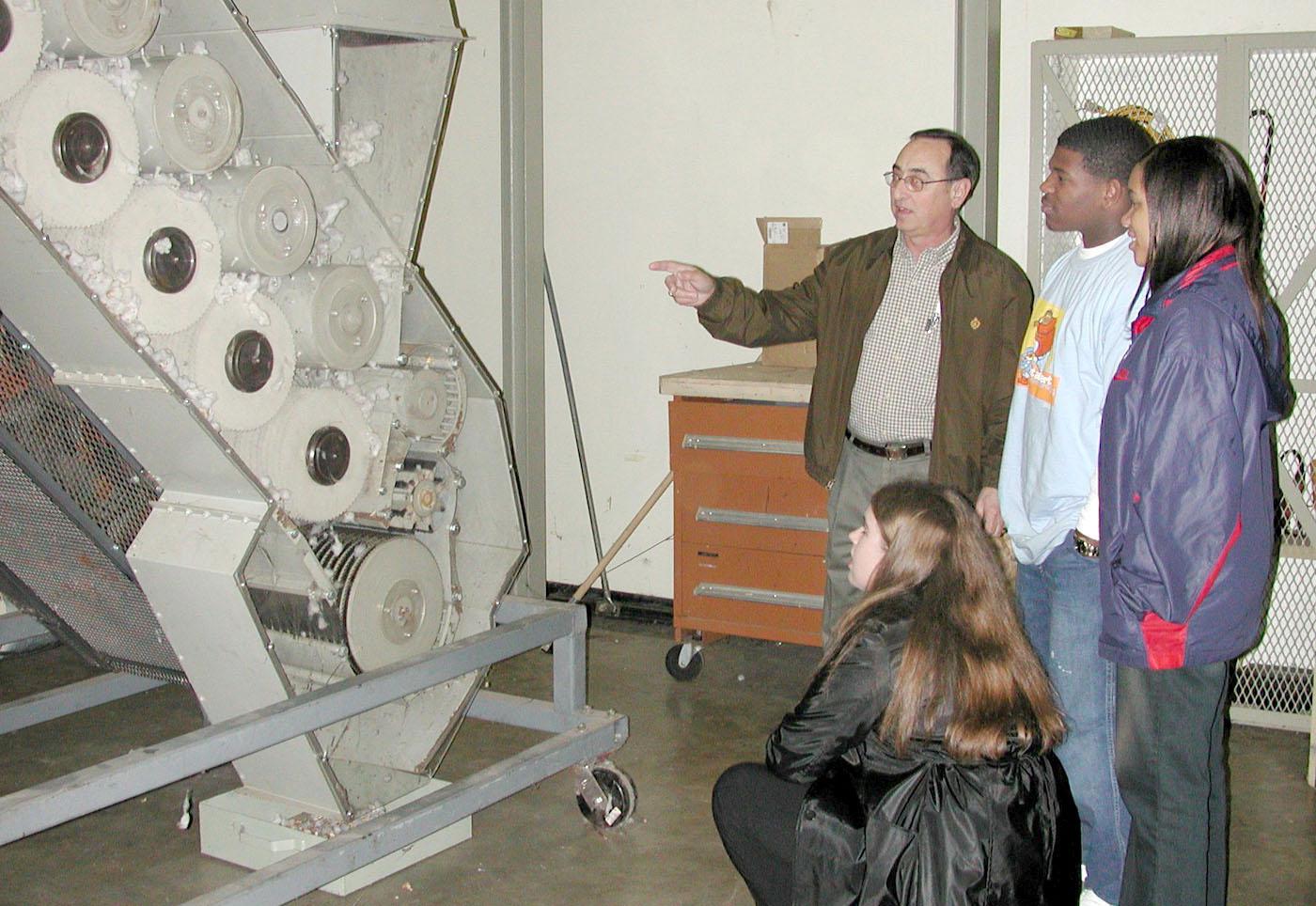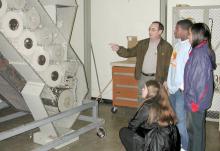Information Possibly Outdated
The information presented on this page was originally released on April 21, 2003. It may not be outdated, but please search our site for more current information. If you plan to quote or reference this information in a publication, please check with the Extension specialist or author before proceeding.
MSU cotton gin serves educational, research purposes
MISSISSIPPI STATE -- Researchers and students from many educational levels are gaining information at Mississippi State University from a fully functional cotton mini-gin, the only operational gin on a college campus.
Eugene Columbus, senior research associate with MSU's Agricultural and Biological Engineering Department, said the 3-year-old gin has been useful in teaching students and in ginning research cotton from the Mississippi Agricultural and Forestry Experiment Station farms. The mini-gin has the ability to accommodate producers' and industry's needs by processing cotton samples too small for a commercial cotton gin to process.
"The cotton gin is designed to take MSU's education a step further by offering an experience not available anywhere else," Columbus said. "Graduates of MSU's gin management and technology program gain the technical and business knowledge necessary to operate in the cotton industry."
MAFES researchers use the gin to process some of their larger research plots. Samples are taken to evaluate moisture content, yields, U.S. Department of Agriculture classing and fiber quality. The mini-gin, which can process one bale an hour, also will be used to help evaluate a new cotton-picker this fall in a joint research effort by MSU's Extension Service and the North Mississippi Research and Extension Center. Cotton Incorporated is funding the study.
The gin laboratory, located in the Pace Seed Lab at MSU, is valued at $2 million. The university was able to construct the equipment for less than one-eighth that cost.
"The gin cost MSU less than $250,000 to build, thanks to several donations by the Southern Cotton Ginners Association and Foundation and by several gin companies and individuals," Columbus said. "Those donors recognized the need for this type of educational opportunity on a university campus."
Columbus said gins have changed very little operationally over the years, but he still has goals for expansion and improvement on the mini-gin.
"Plans to improve the facility include adding a suction unloading system to allow us to take cotton from trailers. We want to add Programmable Logic Controllers to monitor cotton flow, shaft speeds and process throughput," Columbus said.
Two noncommercial, small-scale gins exist in the United States, both in Mississippi: the MAFES-Agricultural and Biological Engineering mini-gin and one at the U.S. Department of Agriculture's Cotton Ginning Lab in Stoneville. A third gin is under construction at the University of Georgia.
Linda Jack, a teacher at Starkville High School, recently visited the mini-gin with students in her agri-science survey class. They were able to watch cotton through plexiglass sides as it made its way through the ginning process.
"This is a good way for students to learn about the textile industry and how it affects Mississippi agriculture. They also gain insight into career opportunities," she said.
Once at MSU, students can pursue a bachelor's degree in agricultural engineering technology and business with an emphasis in gin management and technology.
"Graduates from the gin management and technology emphasis are uniquely qualified for fiber processing industries," Columbus said. "They have the necessary experience and educational background to effectively manage complex ginning systems. Half of our graduates are working in cotton gins and the others are in agriculture-related jobs.




